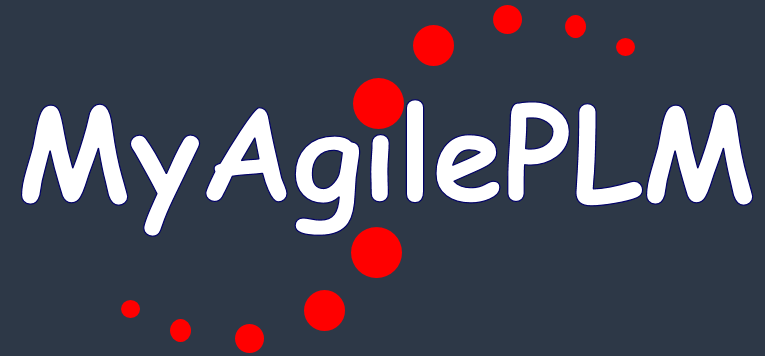By Hector Rodriguez, Industry Executive Director, Healthcare
Today’s transformational technologies are improving how healthcare and life sciences organizations provide the most affordable care and best wellness services to the people and communities they serve. One of these transformational technologies, blockchain, will be on full display during the 17th Cold Chain Global Forum from October 15th to 18th in Boston, MA. This is the largest and most innovative temperature-controlled life science supply chain conference, and this year, we are pleased to announce that Oracle is a sponsor. I hope you can join me on Thursday, October 17th, at 5pm for a discussion on the “Temperature-Controlled Blockchain as a Key Component of the Extended Patient-Centric Supply Chain.”
The concept of “blockchain in healthcare” has been an elusive goal in a scalable and easily applicable solution. Certainly, there have been early applications addressing provider demographics, caregiver credentialing, and even basic logistics. But the more pressing question is: “when will blockchain technology be applied to truly accelerate care outcomes, while leading to lower cost of care and the optimization of the enterprise’s logistics operations?”
Oracle’s approach to this challenge, as demonstrated in September’s 2019 Oracle OpenWorld, is to not simply be a blockchain service provider but to have built-in blockchain-based services, such as “Oracle Intelligent Track and Trace,” across its cloud SaaS applications, including finance, supply chain, and human resources. This enables organizations to more quickly and easily leverage the strengths of blockchain technology as the foundation for end-to-end visibility across their enterprise supply chain and extended industry value chain.
Solving a Vexing Problem in the Healthcare Cold Chain
Some 20% or more of temperature-controlled cold chain goods are wasted at the time of shipping, and the average logistics time from manufacturer to the consumer is 4 to 15 days, according to a Nimble Wireless infographic recently posted on the Cold Chain Hub. That is unacceptable. Instead of a world of infectious disease, today’s healthcare is dominated by a world of chronic disease. Therefore, treatments mandate new biologics and personalized medicines and compounds that must be manufactured, delivered, handled, and administered within specifically defined environmental controls in order to ensure their safety and efficacy.
This new world provides both new challenges, new needs, and new opportunities to improve the logistics of the healthcare supply chain. This new world requires that we more efficiently and effectively bring together the people, processes, and technology that enable a safe and secure end-to-end patient-centric value chain.
How does blockchain fit into this new world? For starters, I’ll provide a few core definitions. A blockchain is a decentralized, distributed ledger that reports all transactions to all members of the consortium with no central authority or single owner. A cold chain is a temperature-controlled supply chain designed to ensure the shelf life of products in a desired low-temperature range, from manufacturer to consumer. Together, blockchain technology and modern cold chain practices present the opportunity to optimize the end-to-end manufacturing, delivery, and consumption of temperature-controlled products, from concept (drug/therapy development), to compound (manufacturing), to consumer (the patient).
To understand the value of blockchain, it’s important to focus on the core foundational strengths of the distributed ledger technology itself. Let’s start with the fact that it’s distributed amongst all of the participants in the blockchain consortium and that it provides one source of the truth. Additionally, the inherent capabilities as an immutable audit trail with built-in trust, encryption, and smart contracts add to its considerable potential in health and life sciences applications.
There are a few core tenants, though, that must be present in a blockchain cold chain solution in healthcare to enable an end-to-end secure chain of custody. Those include: (1) the need for proof of delivery and proof of proper handling at every touch point in the logistics process; (2) real-time tracking of packages along with tracking of the transport vehicles and people involved; (3) the ability to monitor the environmental controls; and finally (4) the ability to establish the integrity of the chain of custody.
At Oracle, we focus on enabling organizations to bring together their enterprise healthcare value chain and clinically integrated supply chain all in one solution. Oracle’s cloud SaaS solutions include finance, enterprise performance planning, supply chain, human resources, and healthcare consumer experience capabilities so that organizations can leverage one platform, one data model, one common user experience, and one security model to accelerate their enterprise operational excellence and align this with their clinical operations. Oracle’s use of built-in transformational technologies—including augmented intelligence and machine learning, blockchain, digital assistants, autonomous database, and Internet of Things (IoT)—helps to ensure that organizations benefit from an innovative platform while not having to build or integrate these services themselves.
We look forward to seeing you at the Cold Chain Global Forum and in our session. If you are unable to make it to the forum, please visit us at Oracle’s blockchain solutions page, and contact your local Oracle account team to set up a time to speak directly with us.


Be the first to post a comment.